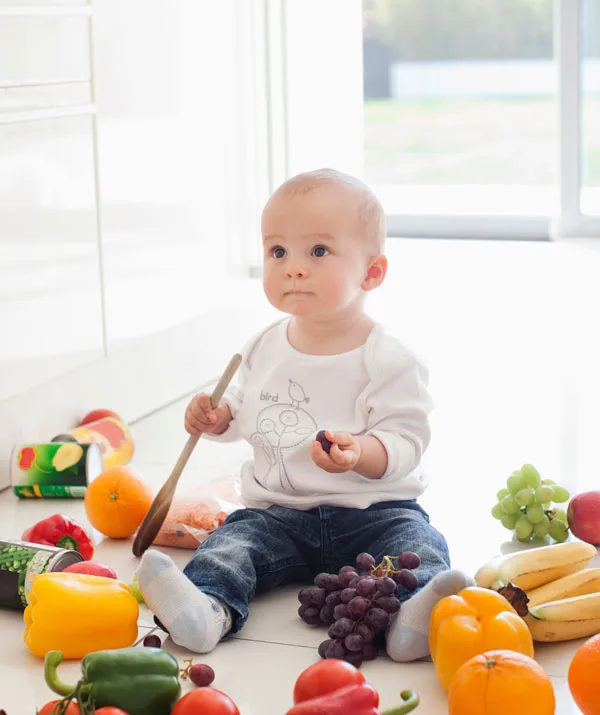Crawling, separation anxiety and teething
Crawling
Your baby has started to sit with a straight back for several minutes without toppling over and she may also be a little more mobile, having mastered the ability to roll over. She can also swivel around and support herself on one hand so that she is able to grab a toy.
To encourage crawling, schedule in plenty of supervised tummy time and put toys just out of her reach. This will give her the incentive to try to push, pull or drag herself forward.
Your little one may have also started to pull herself up to a standing position while holding onto furniture. If you haven’t already baby-proofed your house, now is definitely the time to make your home a safe environment.
Your baby may have their own style of crawling, here are the four most common techniques:
Standard: The classic crawl: She alternates a hand on one side and a knee on the other to get around.
Crab: By bending one knee and extending the other leg, she slowly propels herself sideways.
Commando: Lying flat on his belly, he manages to drag himself forward using his forearms.
Roll: Before they are strong enough to get up on all fours, some babies roll to get where they want to go.

At 8-months-old your baby may have mastered sitting. (Image: Getty Images)
Separation anxiety
Her social awareness is increasing, and by now her relationship with her parents is firmly established. She can understand and remember a routine better, and may also start protesting at strangers.
Your baby may start to seem more aware or afraid of people who she doesn’t know. This is a normal part of learning to feel safe, so when you leave your baby, give them a kiss and a cuddle and say you’ll be back. If she’s upset, take the extra time to comfort her.
Teething
The timing for the arrival of teeth vary from baby to baby but generally most babies get their first tooth on the lower jaw when they are six to 10 months old and should have their first 20 teeth by the time they are three years old.
For some bubs, teething can cause pain. Hugs, a teething chew or paracetamol can help comfort you baby if she’s distressed.
Follow these tips for caring for your baby’s teeth:
• Before teeth start to appear, clean your baby’s gums with a clean, damp washer.
• When teeth begin to pop up, clean them morning and night with a washer or a soft toothbrush.
• From around 18 months of age, begin using a toddler-safe toothpaste and toothbrush and clean twice a day.

